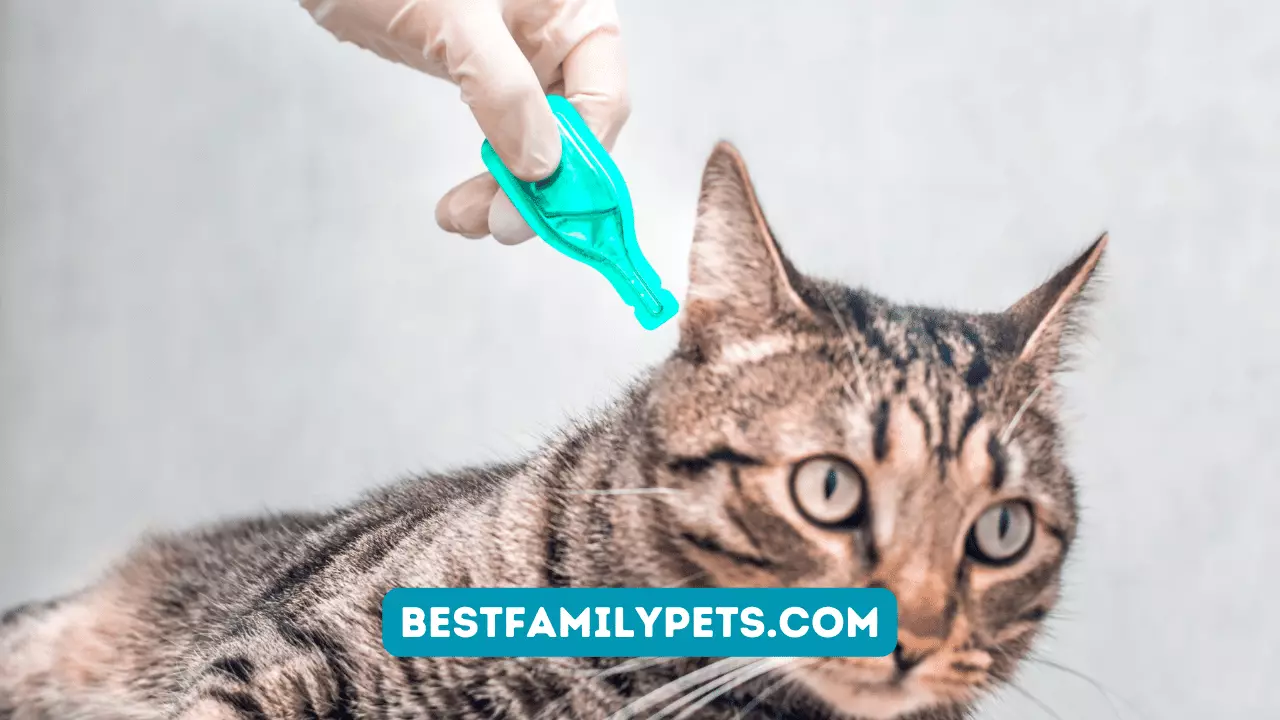How to Take Care Your Cat?
Purrfect care for your feline friend! Learn essential tips and guidelines on how to take care of your cat and ensure their well-being.
Cats are wonderful companions that bring joy and love into our lives. Whether you’re a new cat owner or have had cats for years, providing proper care is essential for their well-being and happiness. In this article, we will explore the various aspects of cat care, from preparing for a cat to dealing with behavioral issues. By following these guidelines, you can ensure that your furry friend leads a healthy and fulfilling life.
Taking care of a cat goes beyond just providing food and shelter. Cats require attention, love, and a nurturing environment to thrive. As responsible pet owners, it is our duty to fulfill their physical and emotional needs.
Preparing for a Cat
Choosing the right cat for you
When considering getting a cat, take into account factors such as your lifestyle, available space, and the cat’s personality. Whether you adopt a kitten or an adult cat, make sure to choose a cat that fits well into your household.
Preparing your home for a cat
Before bringing your new cat home, make your living space cat-friendly. Remove any potential hazards, secure loose cords, and create a comfortable area for your cat to rest and play.
Feeding and Nutrition
Providing a balanced diet for your cat
A proper diet is crucial for your cat’s health. Consult with a veterinarian to determine the appropriate type and amount of food for your cat’s age, size, and specific dietary needs. Consider high-quality cat food that provides essential nutrients.
Understanding the dietary needs of cats
Cats are obligate carnivores, which means they require a diet rich in animal protein. Ensure that your cat’s diet includes meat-based products and avoid feeding them solely on carbohydrates. Provide fresh water at all times to keep your cat hydrated.
Grooming and Hygiene
Brushing your cat’s fur
Regular grooming helps keep your cat’s coat clean and healthy. Brushing not only removes loose fur and prevents matting but also strengthens your bond with your cat. Choose a brush suitable for your cat’s fur type and make grooming sessions a positive experience.
Bathing your cat
While cats are generally self-groomers, occasional baths may be necessary, especially if your cat gets dirty or has a skin condition. Use cat-specific shampoos, be gentle during the bathing process, and reward your cat with treats and praise afterward.
Dental care for cats
Maintaining good oral hygiene is essential for your cat’s overall health. Introduce regular teeth brushing using toothpaste formulated for cats. Additionally, provide dental treats or toys to help keep your cat’s teeth clean.
Exercise and Play
The importance of exercise for cats
Regular exercise is crucial to keep your cat physically active and mentally stimulated. Provide opportunities for play and engage in interactive games that encourage your cat to chase, pounce, and climb. Use toys and scratching posts to satisfy their natural instincts.
Engaging in interactive play with your cat
Spend quality time playing with your cat to strengthen the bond between you. Experiment with different types of toys, such as interactive puzzles or feather wands, and find activities that your cat enjoys. Rotate toys regularly to keep them engaged.
Providing a Safe Environment
Cat-proofing your home
Make your home a safe environment for your cat by removing potential dangers. Secure windows and balconies, store toxic substances safely, and keep small objects or hazardous plants out of reach. Consider providing vertical spaces for your cat to climb and explore.
Keeping harmful substances out of reach
Some common household items can be toxic to cats, including certain plants, cleaning products, and human medications. Keep these substances securely stored and consult your veterinarian immediately if you suspect your cat has ingested something harmful.
Regular Veterinary Care
Scheduling vaccinations and check-ups
Regular veterinary visits are essential to monitor your cat’s health, administer vaccinations, and detect any underlying medical conditions. Follow your veterinarian’s recommended vaccination schedule and schedule annual check-ups for preventive care.
Recognizing signs of illness in cats
Learn to recognize signs of illness or discomfort in your cat, such as changes in appetite, litter box habits, behavior, or physical appearance. Early detection of health issues can significantly improve the chances of successful treatment.
Creating a Loving Environment
Spending quality time with your cat
Cats thrive on companionship and affection. Make time each day to interact with your cat, offering gentle petting, grooming, and cuddles. Engage in activities that your cat enjoys, such as interactive play or simply being present in the same room.
Providing a comfortable and stimulating living space
Create a comfortable environment for your cat by providing cozy bedding, hiding spots, and vertical spaces like cat trees. Offer scratching posts or boards to satisfy their natural scratching behavior and provide toys that stimulate their hunting instincts.
Dealing with Behavioral Issues
Understanding common behavioral problems in cats
Cats may exhibit behavioral issues such as aggression, scratching furniture, or litter box problems. Address these issues by identifying the underlying causes, providing appropriate outlets for their behavior, and seeking guidance from a professional if needed.
Using positive reinforcement for training
Train your cat using positive reinforcement techniques. Reward desired behaviors with treats, praise, and play, and avoid punishment or negative reinforcement. Consistency and patience are key when training cats.
Conclusion
Caring for your cat involves more than just meeting their basic needs. By providing proper nutrition, grooming, exercise, and a safe environment, you can ensure your cat lives a happy and healthy life. Remember to give them the love and attention they deserve, and they will reward you with their companionship and affection.
FAQs
How often should I feed my cat?
The frequency of feeding depends on your cat’s age and individual needs. Consult with your veterinarian to determine the appropriate feeding schedule.
Should I let my cat go outdoors?
It’s generally safer to keep cats indoors to protect them from potential dangers such as traffic, predators, or infectious diseases. However, you can create a safe and supervised outdoor space for your cat to explore.
Do cats need to be bathed regularly?
Cats are usually self-groomers and do not require frequent baths. However, occasional baths may be necessary if your cat gets dirty or has specific skin conditions.
How can I prevent my cat from scratching furniture?
Provide appropriate scratching posts or boards and redirect your cat’s scratching behavior to those surfaces. Regular nail trimming and the use of deterrent sprays can also help.
Why is play important for cats?
Play provides physical exercise and mental stimulation for cats. It helps prevent boredom, reduces stress, and strengthens the bond between you and your cat.
Cat Care 101: How to Take Care of a Cat!
-

Review: PetSafe Simply Feed Automatic Feeder
Are you a busy pet parent who struggles to maintain a consistent feeding schedule for your furry friend? The PetSafe Automatic Feeder might is here.
-



Review: JW Pet Skid Stop Slow Feed Bowl
Does your dog inhale their food in seconds flat? If so, you might be interested in trying a JW slow feeder bowl.
-



Review: Dogit Slow Feeder Dog Bowl
Does your furry friend devour their meals in a flash? If so, you might want to consider a Dogit slow feeder bowl.
-



Review: Outward Hound Fun Feeder Slo Bowl
Does your dog inhale their food in seconds flat? If so, you might be interested in trying a slow feeder bowl.
-



Review: NMN Products Raised Dog Bowls
NMN Products offers a selection of raised dog bowls known for their stylish designs and focus on pet comfort.
-



Review: Pet Zone Adjustable Elevated Pet Feeder
The Pet Zone Designer Diner Adjustable Elevated Pet Feeder aims to elevate your pet’s mealtime experience in both form and function.
-



Review: FOREYY Raised Pet Bowls for Small and Medium Dogs
Looking for a simple and affordable way to elevate your small or medium dog’s mealtime? The FOREYY Raised Pet Bowls might be the perfect option for you.
-



Overview of DNA Testing for Belgian Malinois Dogs
Unleash insights about your Malinois! Explore “DNA dog test for Belgian Malinois” to discover breed, health & behavior traits.
-



Dog Clippers: Which Is the Best for Shih Tzu?
Unmask the best dog clippers for Shih Tzus! Discover key features, top picks, and expert tips for a flawless, stress-free groom at home.
-



Wiry Doxie: Exploring the Wire haired Dachshund
Discover Wire haired Dachshund personality, history, characteristics, facts & unique traits. Learn about wire haired dachshund puppies & responsible ownership.
-



Ringworm in Cats
Learn about ringworm in cats, including causes, symptoms, diagnosis, treatment, and prevention. Keep your feline friend healthy!
-



Can Dogs Drink Almond Milk?
Curious if your dog can enjoy almond milk? Discover the answer, safety tips, and what to avoid. Learn: Can dogs have almond milk? #candogdrinkalmondmilk
-



Best Ways to Treat a Cat with Upper Respiratory Issues
Cat Antibiotics, Cat Respiratory Health, Cat Upper Respiratory Infection, Home Remedies for Cat URI, Treating Cat URIIs your cat suffering from upper respiratory issues? Discover the best ways to provide relief and care for your furry friend’s symptoms here.
-



What is Sign of Cat illness?
Cat Health Check, Cat Health Symptoms, Common Cat Health Problems, Signs of Cat Illness, When to Take Your Cat to the VetDecode feline health signals! Recognize the telltale signs of cat illness and ensure prompt care for your beloved feline companion.
-



Hemp Oil vs. CBD Oil For Dogs
Confused about Hemp Oil vs. CBD Oil for dogs? Learn the key differences & which might be better for your pup’s needs.

















